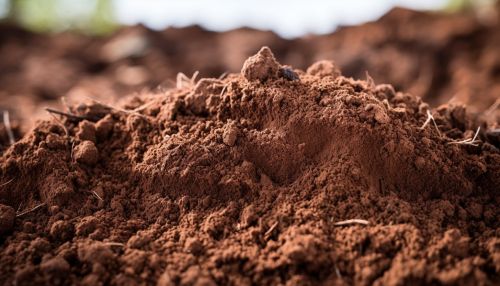Soil-Dwelling Bacteria
Introduction
Soil-dwelling bacteria, also known as soil bacteria, are a type of microorganisms that live in the soil. They play a crucial role in soil health and fertility, contributing to various soil functions and ecosystem services such as nutrient cycling, organic matter decomposition, and disease suppression.
Classification
Soil bacteria are classified into several groups based on their morphological, physiological, and genetic characteristics. The major groups include Actinobacteria, Proteobacteria, Firmicutes, and Bacteroidetes. Each group has unique characteristics and functions in the soil ecosystem.


Role in Soil Ecosystem
Soil bacteria play a significant role in the soil ecosystem. They are involved in various processes that contribute to soil fertility and plant growth.
Nutrient Cycling
Soil bacteria are essential in the cycling of nutrients in the soil. They are involved in the transformation of nutrients such as nitrogen, phosphorus, and sulfur into forms that can be utilized by plants. For instance, certain bacteria, known as nitrogen-fixing bacteria, can convert atmospheric nitrogen into ammonia, a form of nitrogen that plants can use.
Organic Matter Decomposition
Soil bacteria also play a crucial role in the decomposition of organic matter. They break down organic materials, such as plant residues and animal manure, into simpler substances. This process releases nutrients into the soil, enhancing its fertility.
Disease Suppression
Some soil bacteria have the ability to suppress plant diseases. They can produce certain compounds that inhibit the growth of plant pathogens, thereby protecting plants from diseases.
Soil Bacteria and Human Health
Soil bacteria can also have implications for human health. Some soil bacteria are beneficial to human health, while others can be harmful.
Beneficial Soil Bacteria
Certain soil bacteria are beneficial to human health. For instance, some bacteria produce antibiotics that are used in medicine. Additionally, some soil bacteria, such as those in the genus Rhizobium, are used in agriculture to enhance crop production, which can contribute to food security.
Harmful Soil Bacteria
On the other hand, some soil bacteria can be harmful to human health. These include bacteria that cause diseases such as tetanus and botulism. These bacteria can enter the human body through wounds or ingestion and cause illness.
Conclusion
In conclusion, soil-dwelling bacteria are a vital component of the soil ecosystem. They contribute to soil fertility and plant growth, and they can also have implications for human health. Further research is needed to fully understand the diversity and functions of soil bacteria, and to harness their potential for sustainable agriculture and human health.
